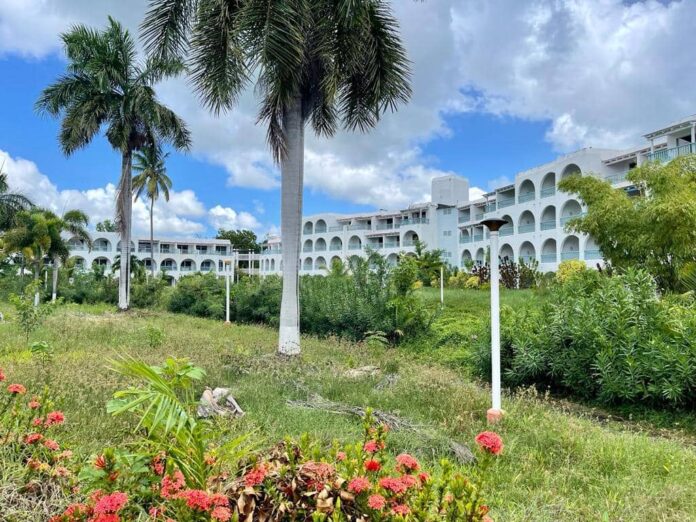The Antigua and Barbuda government is moving ahead with a bold investment plan that would see the Jolly Beach Resort transferred to the Social Security Board as part of a long-term strategy to boost the pension scheme’s sustainability.
Prime Minister Gaston Browne announced that the 315-room beachfront property, spanning 27 acres and valued at EC$67 million, will be transferred to Social Security to offset a portion of a longstanding government debt. The debt stems from a $330 million bond issued in 2010, which has remained a non-performing asset on the Social Security books for more than a decade.
The proposed strategy involves selling the existing hotel units through the Citizenship by Investment Programme (CIP) at EC$900,000 per unit. This is expected to raise approximately EC$200 million, after administrative costs. An additional EC$75 million would then be invested to construct 200 new units on the property, with each unit projected to sell at EC$1.3 million—generating a further EC$200 million in net revenue.
In total, the government projects EC$400 million in revenue over ten years, averaging EC$40 million annually. Browne argued that this model significantly outperforms traditional fixed deposits, which yield about two percent annually.
The hotel’s operations would also factor into the revenue stream. Social Security could retain ownership and operate the resort, potentially increasing net earnings from the current EC$4 million to EC$10 million per year. Annual homeowner fees of EC$1,000 per unit are expected to contribute an additional EC$6 million annually toward maintenance.
Prime Minister Browne said that, even under conservative estimates, the real estate strategy would deliver superior returns compared to conventional low-yield investments. He also stressed that in the event of underperformance, the government would guarantee the value of the asset, offering a safeguard for the pension fund.
Critics of the plan have expressed concern over the risks of tying pension stability to tourism-related real estate. However, the government insists that stringent oversight measures—including independent audits, parliamentary reporting, and risk caps—will ensure accountability and prudent management.
The Prime Minister defended the move as part of a broader effort to diversify the Social Security portfolio and avoid past mistakes. He criticised previous administrations for failing to implement reforms or build an effective investment strategy, which contributed to the scheme’s past insolvency.
With Social Security now considered solvent following earlier reforms, the government sees the Jolly Beach plan as a strategic next step in securing long-term pension viability while revitalising a major tourism asset.


